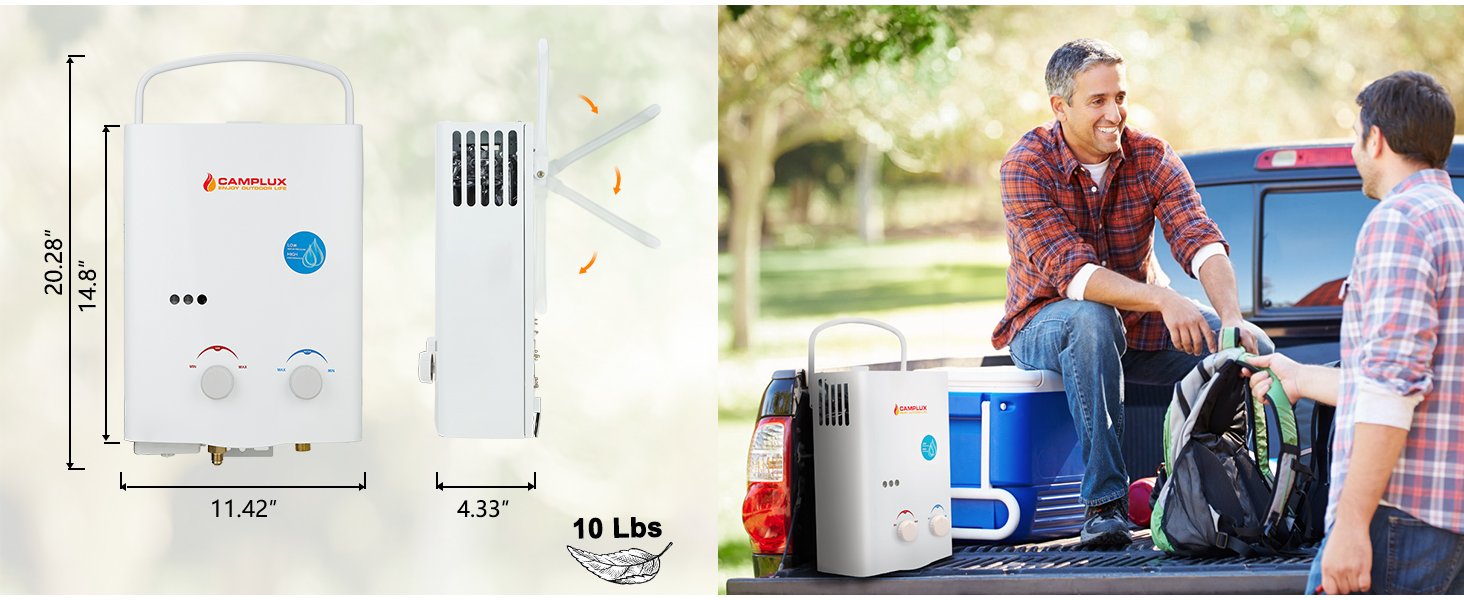When it comes to heating water in your home, traditional systems have long been the standard. However, with the increasing demand for more efficient, cost-effective, and space-saving solutions, many homeowners are exploring alternatives, including portable water heaters. But can a portable water heater truly replace your home’s water heating system? In this article, we’ll explore the benefits and limitations of portable water heaters to help you decide if they are a viable replacement for traditional systems.
Traditional Water Heating Systems vs. Portable Water Heaters
Traditional water heating systems, such as tank water heaters or tankless models, have been the go-to option for many households. These systems are typically large, requiring installation in dedicated spaces with significant capacity to handle the water needs of a whole household. They can be connected to your home’s plumbing system and are designed to supply hot water on-demand or store it in a tank for later use.
On the other hand, a portable water heater is a compact, on-demand unit that heats water as you need it. These units are typically powered by electricity, propane, or even solar energy, making them more versatile and adaptable to various living situations. The main appeal of portable water heaters is their convenience and efficiency, especially for those in off-grid living situations or smaller homes.
Benefits of Using a Portable Water Heater
Portable water heaters offer several advantages, especially in terms of energy efficiency and space-saving. For homes with limited space or in situations where a traditional water heating system is impractical, a portable water heater can be an ideal solution. These units are compact and can be installed virtually anywhere, saving valuable space. Additionally, because portable water heaters heat water on-demand, they don’t require the energy to keep a large tank of water hot, making them more energy-efficient.
Moreover, portable water heaters are more affordable than traditional systems. They don’t require extensive installation and are often cheaper to purchase and maintain. For smaller households or those who don’t need to constantly use hot water, a portable water heater can provide significant cost savings over time.
Limitations of Portable Water Heaters
While portable water heaters offer many benefits, they do have some limitations when it comes to replacing a traditional home water heating system. One of the main drawbacks is their water output capacity. Portable units are typically designed to provide hot water for one or two faucets or appliances at a time. If your household requires hot water for multiple uses simultaneously, such as showers, dishwashing, and laundry, a portable water heater may not be able to meet these demands as effectively as a larger, traditional system.
Additionally, portable water heaters may have limitations in terms of temperature and flow rate. Some models may not be able to provide the same high temperatures or consistent flow of hot water that traditional systems can deliver. While these units are ideal for smaller households or specific applications (e.g., outdoor showers, RVs), they may not be able to replace the functionality of a whole-house system for larger families or homes with higher water demands.
The Right Application for Portable Water Heaters
In conclusion, while a portable water heater can be a great supplement to your home’s water heating system, it may not fully replace a traditional system in larger households or homes with high water usage. However, for small households, off-grid living, or situations where space and energy efficiency are priorities, a portable water heater could be a viable option.
If you’re considering replacing your home’s water heating system, it’s essential to evaluate your water usage needs, available space, and budget to determine whether a portable water heater is the right choice. For many, combining a portable water heater with a traditional system might provide the best of both worlds, offering flexibility, efficiency, and convenience.
